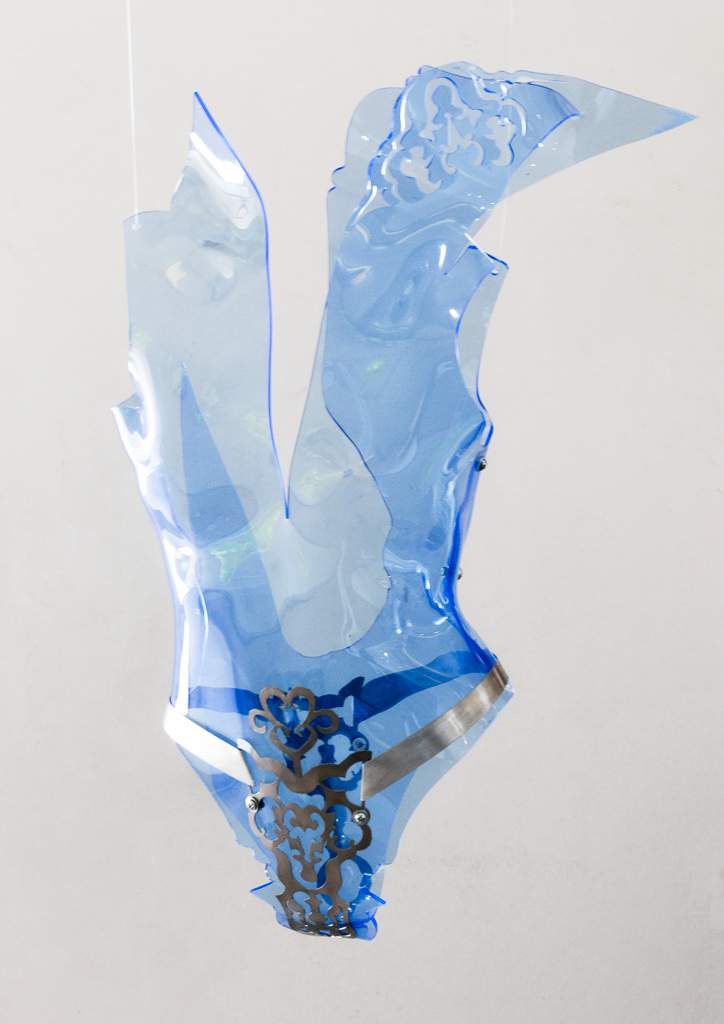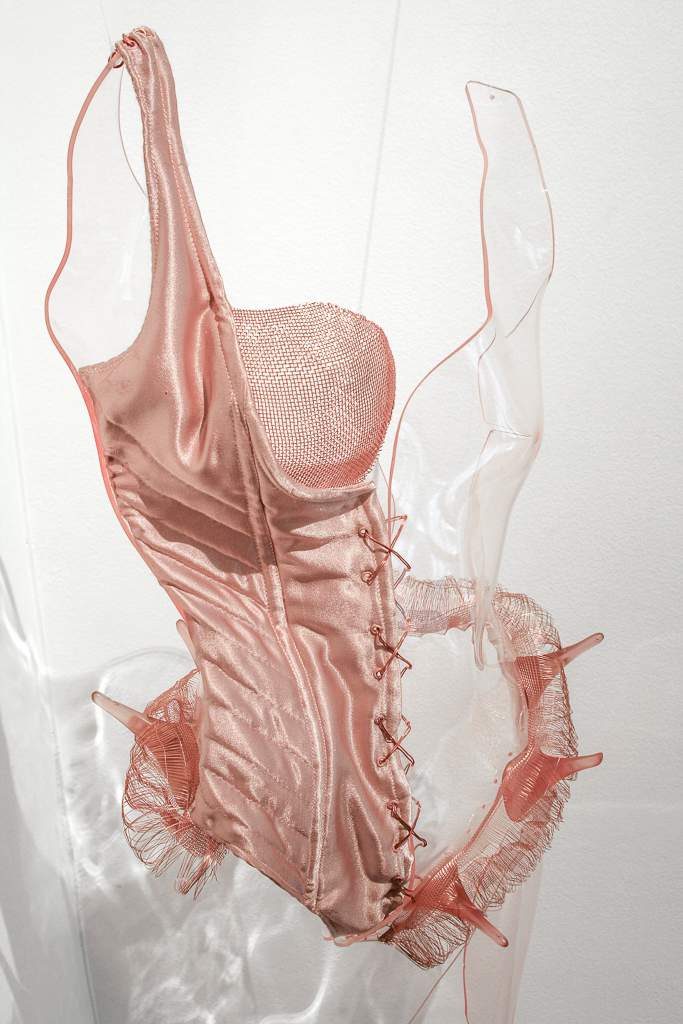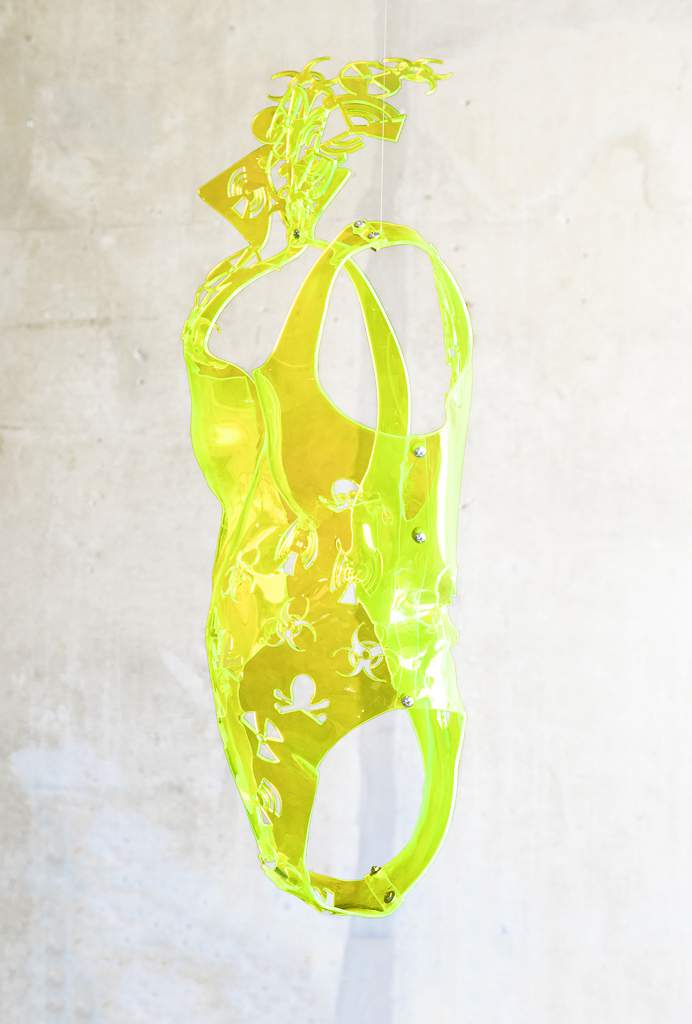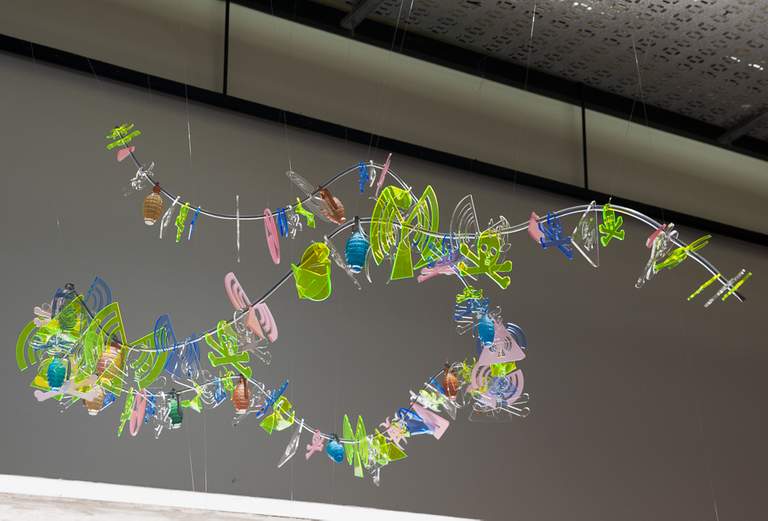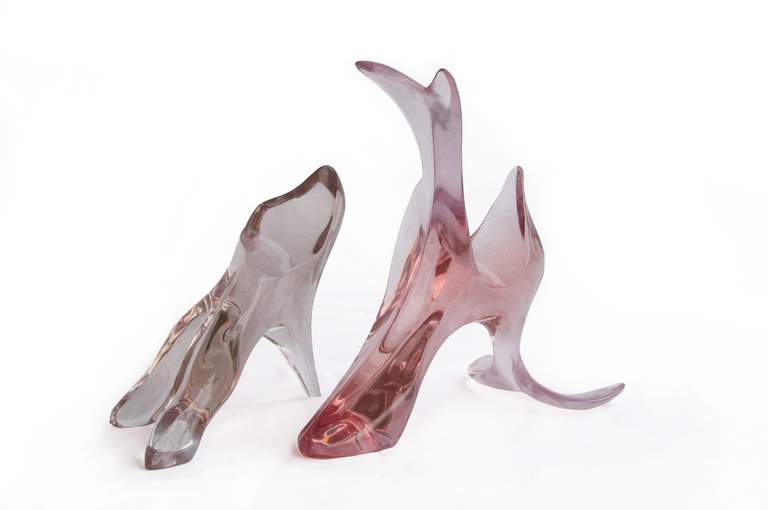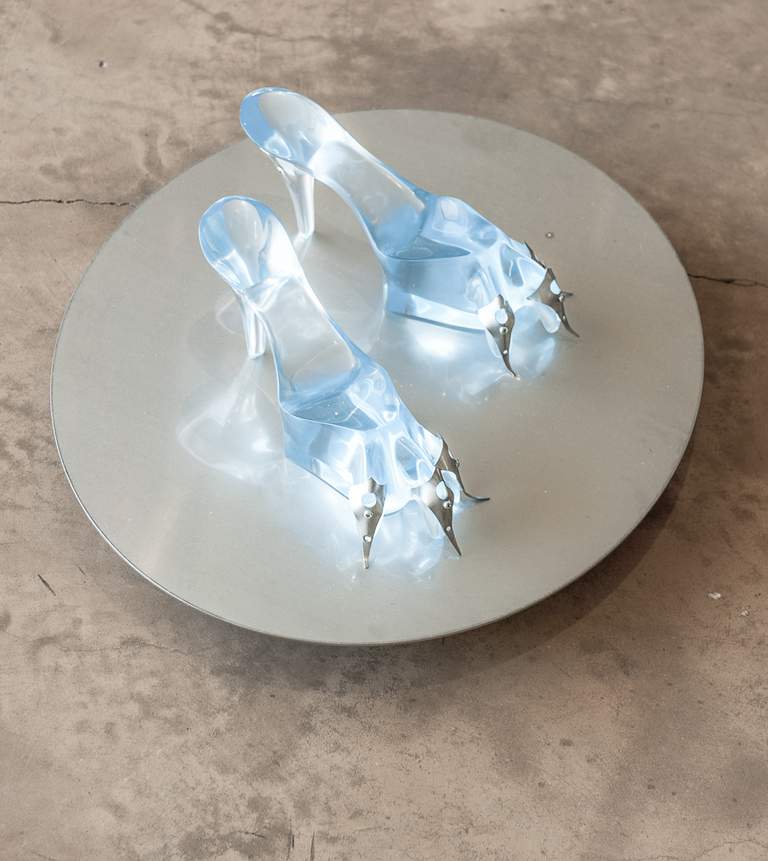The Three Graces 2.0
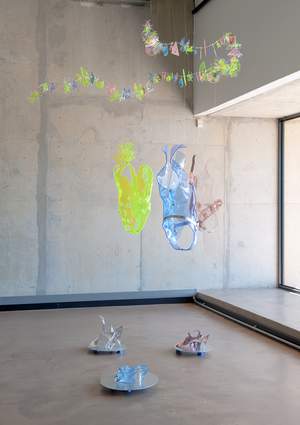
The Three Graces 2.0 re-images the mythological graces depicted by numerous artists since 400 BC. This dystopian interpretation speculates about a post-human existence, where new and otherworldly hybrid mutant identities such as sirens or cyborgs may be fantasized into being to embody feminine resilience. The mythical wedding of Aglaia (beauty) with the god Hephaestus (technology and craft) expressed traditional Greek beliefs in the embodiment of grace through labour (art-making).
Historically, Aglaia, Euphrosyne (joy), and Thalia (charm), were the daughters of Zeus and the nymph Eurynome.
Together with the Muses, the three graces primarily entertained the guests of the gods on Mount Olympus through song and dance. Traditionally they are depicted holding a garland of roses, myrtle, apples, corn and perfume.
In this contemporary update, the hazardous and aggressive emblems of radiation, viruses, war and death have been absorbed into the garland to subvert the traditional playfulness associated with female identity. They express the new roles and concerns of women in society.
